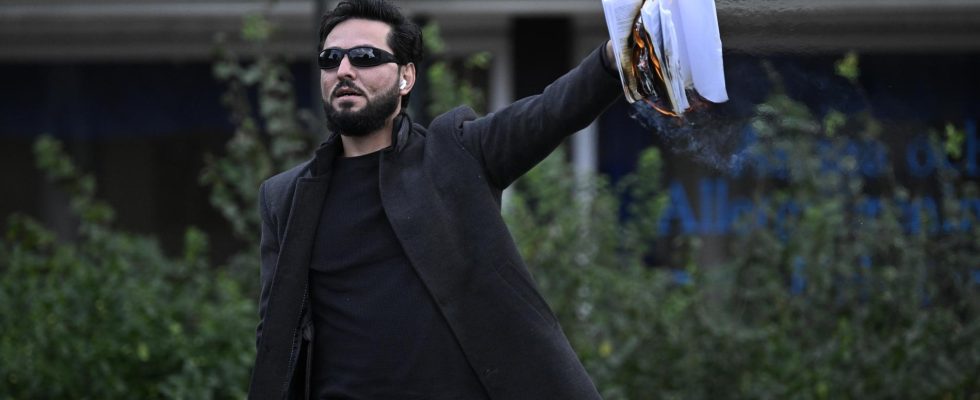unsaveSave
expand-left
full screen
chevron-rightnext
Salwan Momika burns a Koran during a “general gathering” on Lorensborg Square in Malmö. Archive image.
1 / 2Photo: Johan Nilsson/TT
The legal protection for religious freedom works well in Sweden. But the country faces major challenges in terms of intolerance towards and between religious groups, a new UN report states.
Due to the repeated Koran burnings, the UN’s special rapporteur on matters of religious freedom, Nazlia Ghaena, visited Sweden for ten days in October last year. She met representatives of the government, authorities such as the police and institutions at various levels in Sweden.
Now her conclusions have been published in a report, and the overall assessment is that Sweden has a strong legal and political framework to protect religious freedom. Dialogue with and support for religious communities is also highlighted as good examples internationally.
However, the report author believes that it is a problem that some actors do not understand the full scope of freedom of religion and belief. In particular, she highlights the concerns raised by Muslim and Jewish communities about the growing intolerance towards them.
Although no direct criticism is directed at Sweden’s handling of the Koran burnings, the report points out that Sweden faces a number of challenges “as the country grapples with the emergence of a multi-ethnic and multi-religious society”.
Push back threats and hatred
Social Affairs Minister Jakob Forssmed (KD) tells TT that Nazlia Ghaena’s visit to Sweden was valuable and that the government will carefully analyze the report and recommendations.
Can this calm the outraged feelings that have existed internationally in connection with Koran burnings?
– It is possible because she is very clear that there is a fundamental freedom of religion in Sweden. But religious freedom should not only exist on paper, it must also work in everyday life, says Jakob Forssmed.
Reviewing the ordinance
Minister of Justice Gunnar Strömmer (M) says that the government is currently reviewing the ordinance to be able to deny Koran burnings with reference to threats to national security. The report’s conclusions do not change those plans.
– The report states that the government has been clear that the opportunity to express oneself in this way for an individual is not the same as the government or the surrounding society standing behind it.
Is it important that no criticism is directed at how Sweden handled the Koran burnings?
– The rapporteur points out that we have very extensive protection for freedom of expression, but that this does not mean that it is absolute, but that burning the Koran under certain circumstances can be illegal, says Strömmer.
